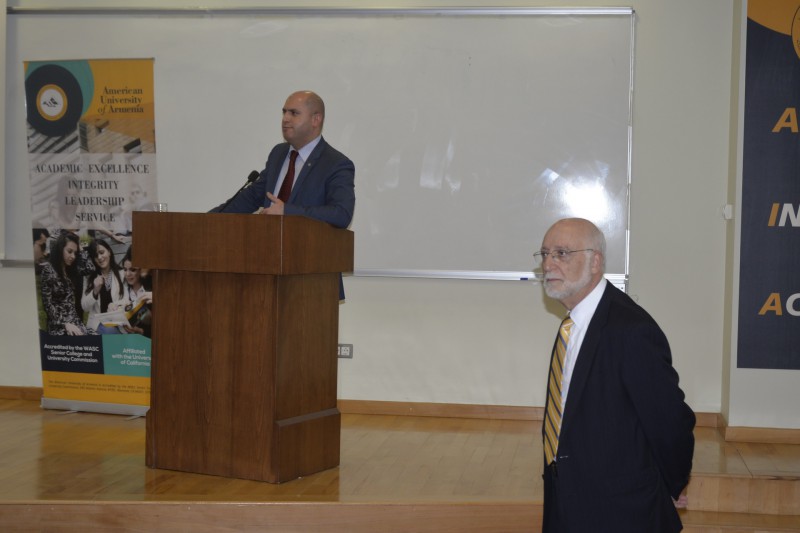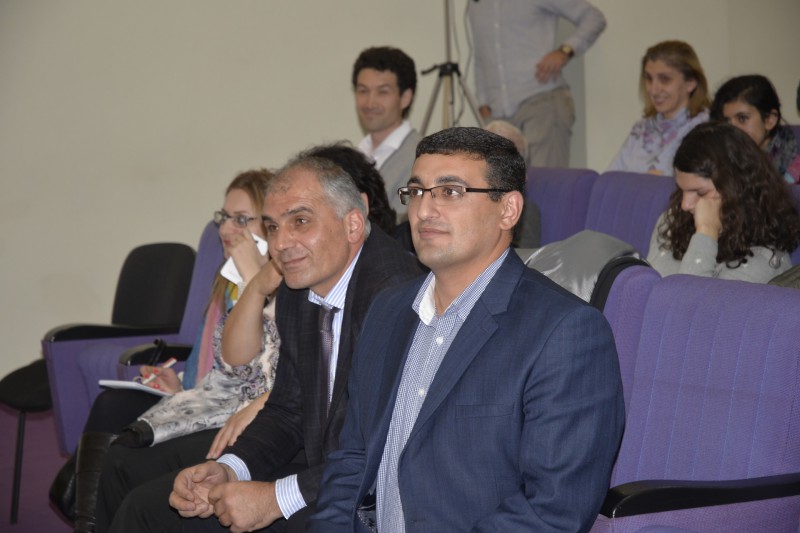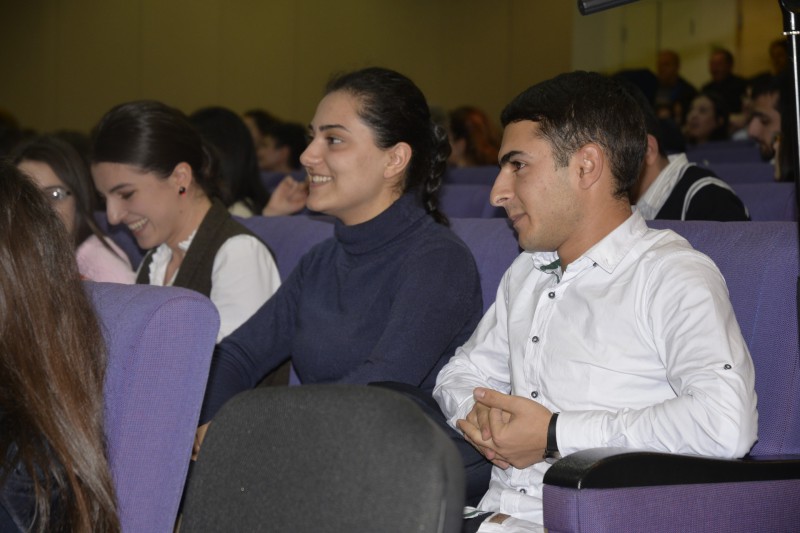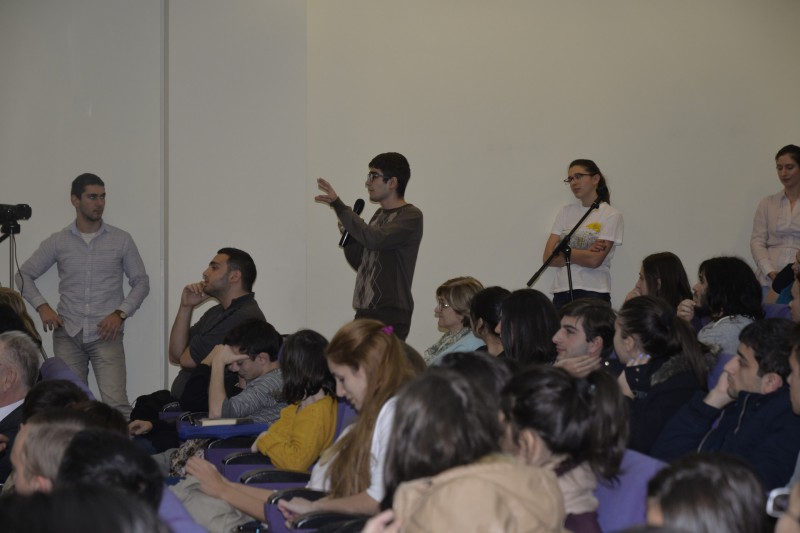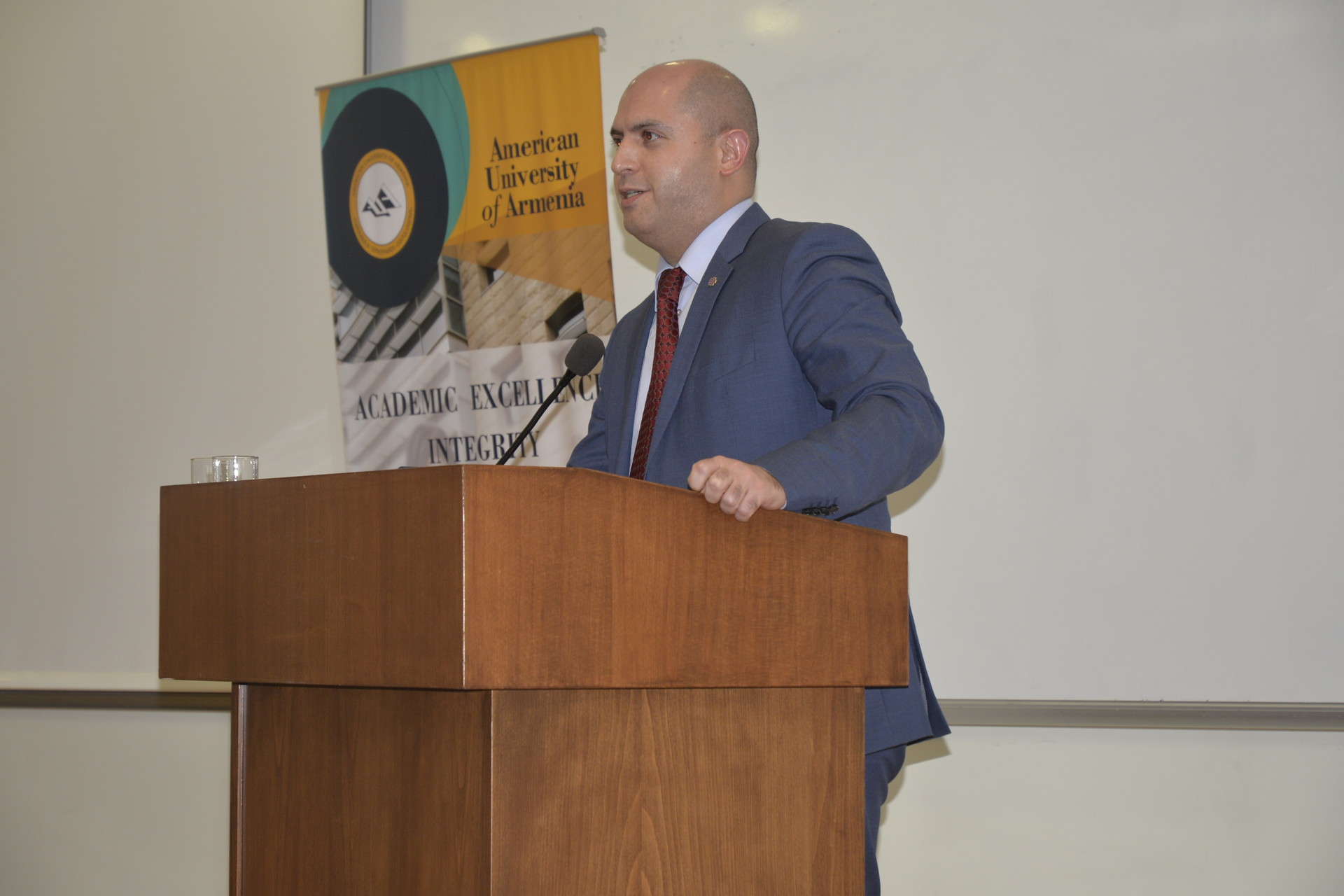
Integration through Education: Armen Ashotyan Delivers Lecture at AUA
3 min readArmenian Minister of Education and Science Armen Ashotyan delivered a lecture titled, “Integration through Education,” on November 20 at the American University of Armenia.
In his speech, the minister said that it was an honor for him to make such a public appearance, especially at the American University which is among the leading institutions of higher learning in the country. Addressing the subject matter of his lecture, the minister described education as the best tool for any kind of integration.
“Let us see what significance education has for Armenia in terms of integrating into global processes and which region is educationally more beneficial for citizens of Armenia. There are educational programs in the frameworks of the Commonwealth of Independent States (CIS), but the CIS programs are obsolete and in need of revision. I can hardly remember an internationally important educational event that has taken place in the CIS member countries. The main platform of Armenia’s educational system is the Europe’s higher education sphere. This year, we mark the 10th anniversary of our membership in the Bologna educational process. We tried, from the very outset, to transform our educational system inherited from Soviet Armenia, and in 2005 we made an attempt to have an educational system conforming to the European competitiveness standards. It was not easy to create an educational system that would be in line with both the people’s national and cultural expectations, and the high European standards. Despite all the obstacles and difficulties, we did achieve success and complete the first phase of the educational reforms thanks to our integration into the European higher education sphere. We implemented all the necessary structural changes to ensure Armenia’s compliance with the European higher education sphere. Presently we have a three-tier educational system, a credit system, and institutional certification centers not only at the national level, but also at the level of universities. It is presently a challenge for Armenia to switch over to substantial reforms, to try and revise the content of educational programs based on European standards, and to bring them in line with the demands of our society and citizens. The role of education, in general, is underestimated in political processes. In my view, education is the best tool for building bridges among people. Education is the best platform for human-to-human contact. Any political and geopolitical process can be successful because it is, first of all, a good opportunity for intercultural exchange and a wonderful tool for building human relations and trust. That is why, I think, the European Union is paying great attention to education and educational programs in the Eastern Partnership countries. As you are aware, a new EU educational program, Erasmus+, was launched in 2014. The next important educational program is Horizon 2020, a scientific platform that will help Armenian scientists and researchers become members of the European Association of Research. Beginning in 2016, Armenia will officially join Horizon 2020 as a full-fledged member, which means that Armenian scholars, if competitive, will receive financial aid and be able to find partners in Europe. When speaking about the future, it is very important to realize that Armenia will never change its place in the European higher education sphere. Armenia is the only non-EU member country that took over the responsibility of hosting the Bologna Secretariat for three years and conducted the Bologna Ministerial Summit in Yerevan. Thus, it is very important to understand that the civilization-led choice for Armenia’s educational system [to be part of] the Bologna Process is a matter of not only educational criteria, but also values. I think it may be of interest to you to know the educational prospects at the core of Eurasian Economic Union (EEU) membership. The EEU does not have an educational system at the moment. But there are provisions obliging the member states to automatically recognize the diplomas and academic degrees (with the exception of medical, pedagogical, and legal education). Thus, the common economy is dictated by the common labor market, and the common labor market requires a common educational platform. My personal opinion is that the EEU – if it is a long-lasting project – should also have its own educational system and educational programs, because the EEU countries are members of the Bologna process. It is therefore clear that even if the EEU has an educational program of its own, this program will not run counter to those in the Europe’s higher education sphere; on the contrary, it has to use the experience of the European projects. Summing up my speech, let me note once again that education must be recognized as a very important economic and political tool in long-term and sustainable education projects,” Ashotyan noted.
The minister also responded to students questions that mainly related university rankings, the Bologna process, university libraries, etc.
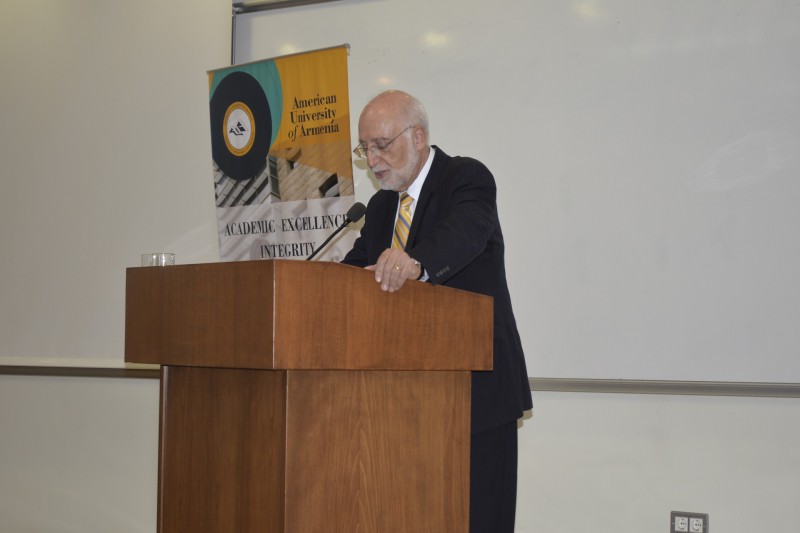
AUA President Armen Der Kiureghian welcomes Minister of Education and Science Armen Ashotyan to AUA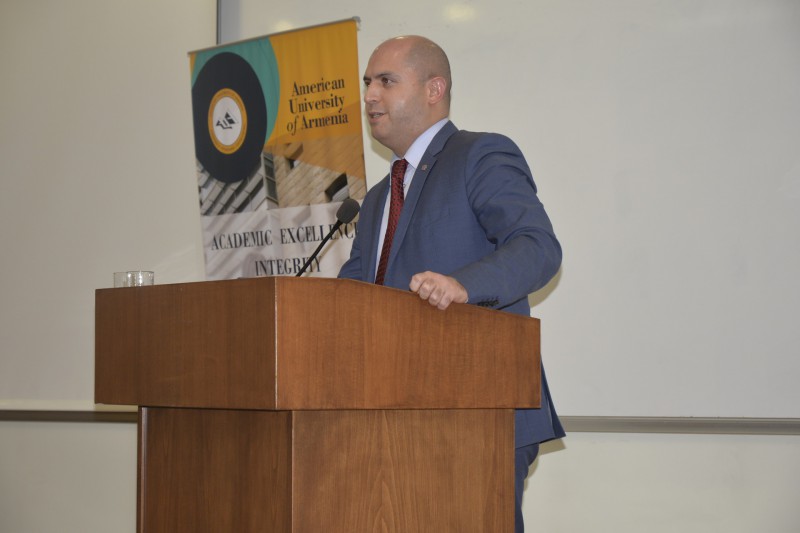
Minister of Education and Science Armen Ashotyan speaks to AUA students, faculty, and staff 